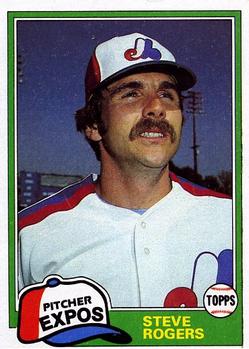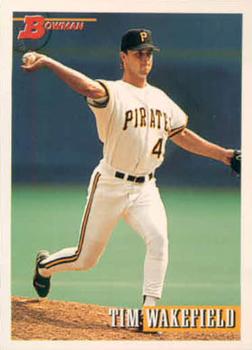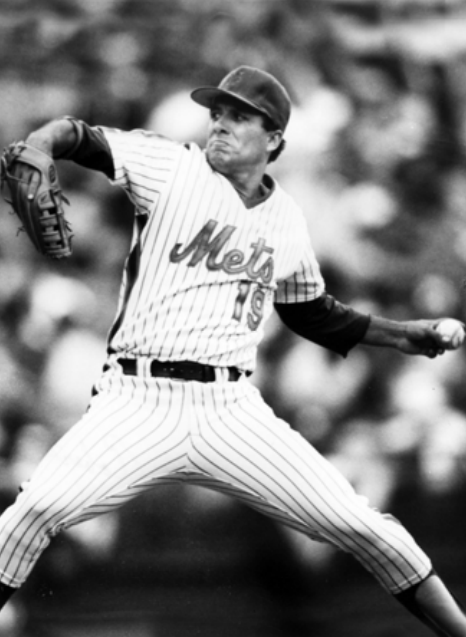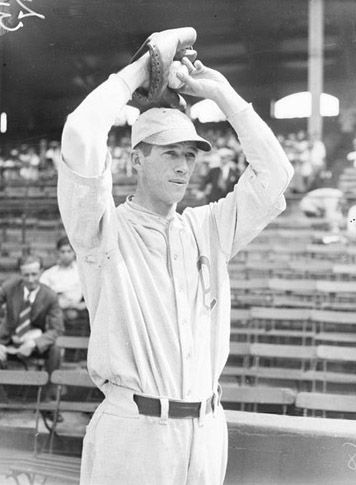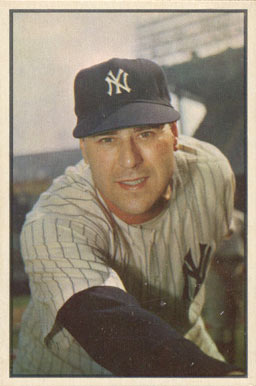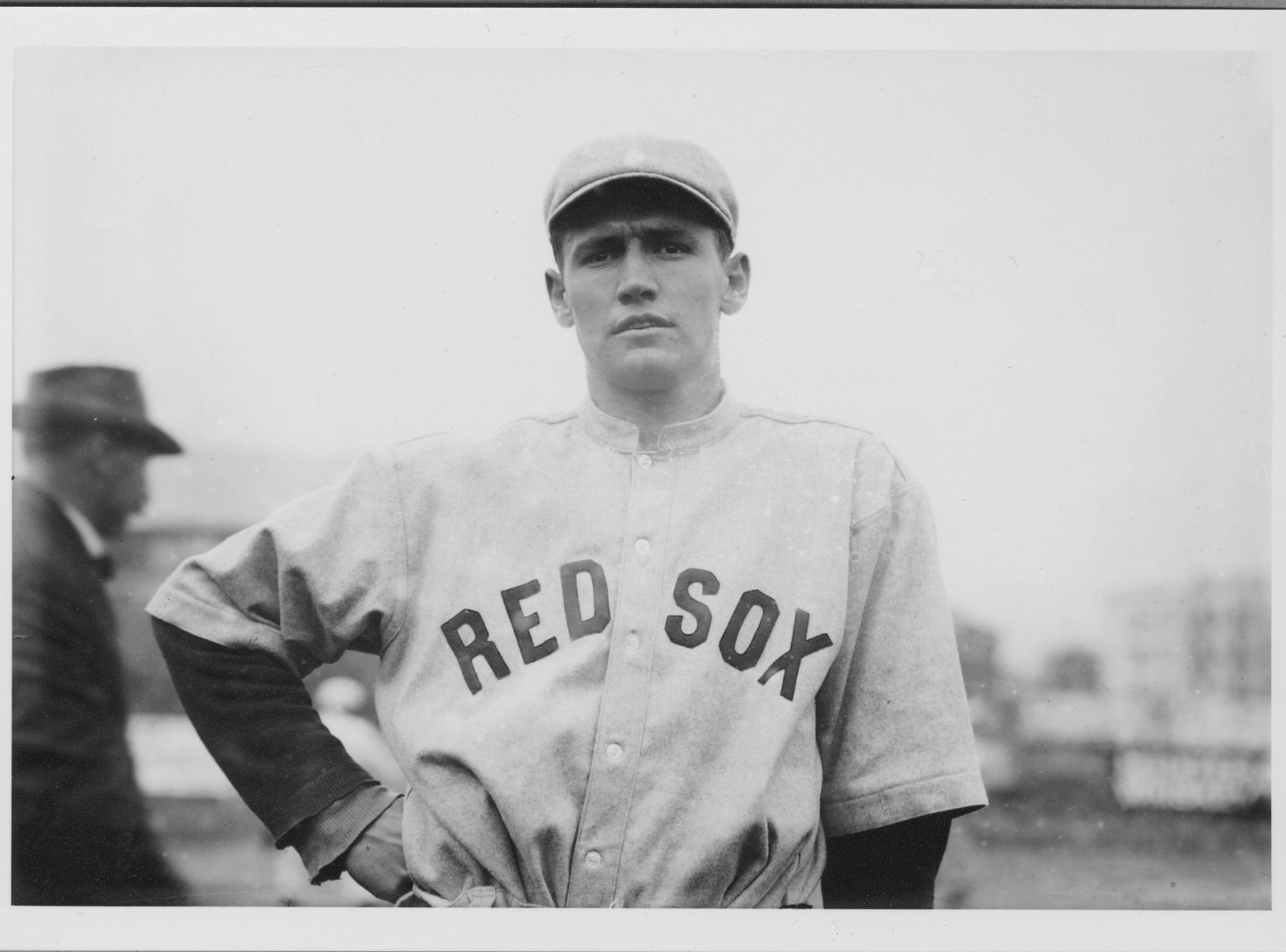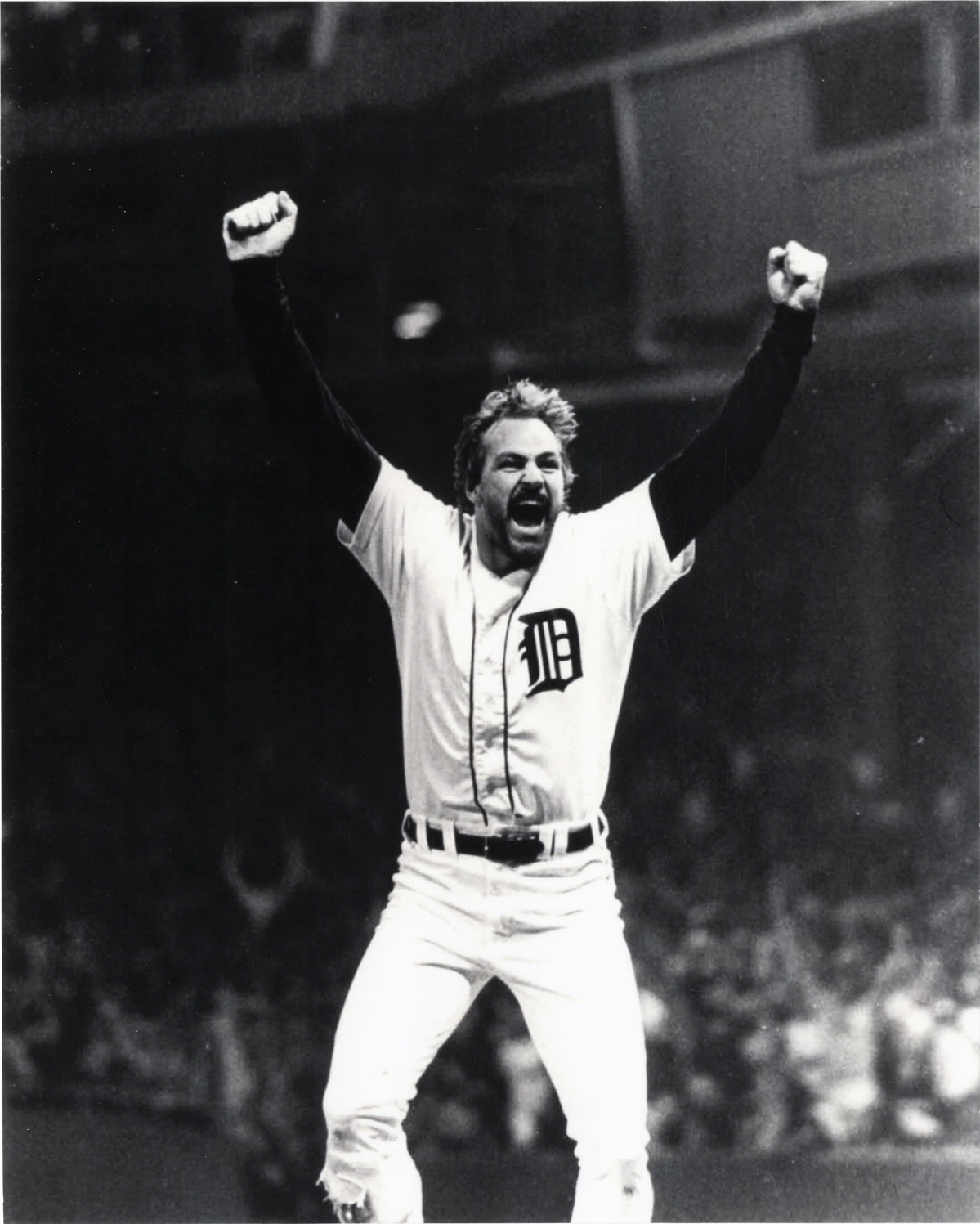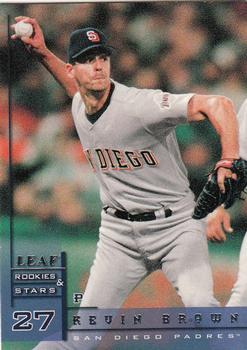October 14, 1981: Expos’ Ray Burris outduels Valenzuela to even up NLCS
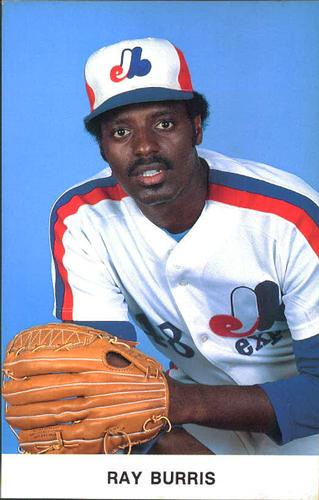 It looked like the best-of-five National League Championship Series was going to be a short one. The Montreal Expos had outhit Los Angeles in Game One, but they couldn’t get the big hit when they needed it. The frustrating loss was their 10th in a row at Dodger Stadium and the 19th in their last 20 games. Chavez Ravine was a wasteland as far as the Expos were concerned.1
It looked like the best-of-five National League Championship Series was going to be a short one. The Montreal Expos had outhit Los Angeles in Game One, but they couldn’t get the big hit when they needed it. The frustrating loss was their 10th in a row at Dodger Stadium and the 19th in their last 20 games. Chavez Ravine was a wasteland as far as the Expos were concerned.1
Game Two wasn’t going to be any easier for Montreal. The Dodgers had their ace, Fernando Valenzuela, on the hill. The 20-year-old phenom started the season by going 8-0 with a minuscule 0.50 ERA in his first eight starts, leading to an outbreak of “Fernandomania.” Eleven of Valenzuela’s 12 home starts were sellouts during the regular season, and his road appearances drew thousands of additional fans.2 The left-handed screwball artist continued to dominate in the National League West mini-series by posting a 1.06 ERA in his two starts against the Astros.3
Montreal handed the ball to 31-year-old journeyman Ray Burris, who was coming off a poor outing against the Phillies in the NL East mini-series. Burris had been quietly signed by the Expos to a modest one-year contract just days before spring training opened in a move to add depth to the back end of their young rotation. He had spent most of his first eight years in the big leagues toiling with some terrible teams. Aside from an outstanding 1976 season with the Cubs, Burris’s career had been unspectacular up to that point, as indicated by 63-76 record and a mediocre 4.26 ERA. After struggling in the month of May, Burris had one of his starts skipped in the rotation. The managerial decision did not sit well with the veteran hurler, and Burris responded with one of the best stretches of his career, going 7-3 with a 2.64 ERA for the remainder of the regular season.
Fortunately for the Expos, Valenzuela lacked his usual pinpoint control in Game Two. He failed to throw a first-pitch strike to the first seven Montreal batters, forcing him to work from behind in the count. Singles by Larry Parrish and Jerry White had runners at first and second with one out in the top of the second inning. First baseman Warren Cromartie followed with a double into the right-field corner to score Parrish with the game’s first run. After a walk to Chris Speier loaded the bases, Burris struck out for out number two, bringing 22-year-old Tim Raines to the plate. The future Hall of Famer sliced an opposite-field single into right field that scored White, although Cromartie was thrown out at the plate by Pedro Guerrero to end the inning.
Burris, relying heavily on his slider, curveball and changeup, breezed through the first five innings. He scattered two singles and a walk across the five frames, and not a single Dodger advanced beyond first base.
After Cromartie was thrown out to end the second inning, Valenzuela settled down and retired the next 10 Montreal batters in order. The streak was broken when a struggling Andre Dawson stroked a line-drive single into right field with one out in the sixth inning. Gary Carter followed with a groundball single that eluded a diving Ron Cey, sending Dawson to third. When Carter took a wide turn at first base, left fielder Dusty Baker made a wild throw to second that rolled into foul territory, allowing Dawson to trot home easily and extend Montreal’s lead to 3-0.
Burris ran into his first bit of trouble in the bottom of sixth when a one-out walk to Ken Landreaux and Baker’s single put runners on the corners. He escaped the jam by inducing Steve Garvey to hit into a 5-4-3 double play that was deftly turned by second baseman Rodney Scott, who had to avoid a hard takeout slide by Baker.4
The Dodgers could muster only a single by Bill Russell against Burris in the seventh and eighth innings. With one out in the bottom of the ninth, Garvey smacked a single up the middle. Cey followed with a hard groundball that looked like a tailor-made double play, but the ball took a tough hop that Speier was unable to come up with. The untimely error put runners at first and second with the potential tying run coming to the plate. On a 2-and-0 count, Guerrero hit a line drive to Speier’s right, and the Montreal shortstop redeemed himself by making a nifty shoestring catch. Garvey, thinking the ball was headed into left field, was easily doubled off at second base to end the game.
Burris had carried the Expos to a highly improbable victory. He did it in convincing fashion, scattering five singles and allowing only two Dodgers to reach second base. The win was Montreal’s first at Dodger Stadium since July 21, 1979, and it was the veteran right-hander’s first nine-inning, complete-game shutout in over 4½ years.5 “Tonight I mixed my offspeed pitches,” Burris explained. “Earlier this year I went with mostly the hard stuff and they clobbered me.”6 Garvey gave full credit to Burris. “That’s the best stuff I’ve ever seen him have,” the Dodgers first baseman said. “He changed speeds really well and kept us off balance.”7
The Expos were in a precarious position coming into Game Two. Suddenly, they were heading back to Montreal for the final three games of the series with all the momentum. The Expos boasted the best home record in the National League dating back to the start of the 1979 season, and they had their staff ace, Steve Rogers, pitching next.
True to form, Rogers pitched a strong Game Three, and the Expos won a thriller on a three-run home run by Jerry White, moving the expansion team to within one game of its first World Series appearance. The Dodgers avoided elimination in Game Four thanks to a clutch eighth-inning home run by Garvey and solid pitching from Burt Hooton, setting up a winner-take-all contest.
Game Five was a rematch between Burris and Valenzuela on a cold, dreary Monday afternoon. Burris was every bit as good as the Dodgers’ ace that day, giving up only a single run on five hits over eight innings. In a controversial move, Expos manager Jim Fanning lifted Burris for a pinch-hitter with one out and nobody on base in the bottom of the eighth inning with the score tied 1-1. Burris had thrown only 104 pitches, and he wasn’t thrilled about the decision. “I was actually getting stronger,” he said. “I was disappointed (to be) coming out.”8 The pinch-hitter, 24-year-old Tim Wallach, grounded out weakly to Valenzuela on the first pitch. In the top of the ninth inning, Rick Monday stunned the Expos with a two-out, solo home run to clinch the series. The soul-crushing game, known to Expos fans as Blue Monday, is generally regarded as the beginning of the end for the Expos in Montreal.
Hooton, who tossed 14⅔ scoreless innings against the Expos, was named series MVP. The Dodgers went on to beat the Yankees in six games for their fifth World Series championship in the 98-year history of the franchise. A few weeks later, Valenzuela became the first player in baseball history to win the Rookie of the Year and Cy Young Awards in the same season. As of 2019, the feat had not been duplicated.
Burris had outpitched one of the best pitchers in baseball in two crucial playoff games, holding the powerful Dodgers to only one run and 10 hits over 17 innings. Yet years later, his efforts in the 1981 NLCS have largely been forgotten. At the conclusion of the first two playoff rounds that year, no player in baseball had done more to help his team’s chances of winning the World Series than Burris, as measured by Championship Win Probability Added (cWPA).9 Despite a subpar performance against the Phillies in the mini-series, Burris still posted an impressive 21.3 percent cWPA.10 Had an Expo hit a solo home run late in Game Five of the NLCS instead of Monday, then the history of the Montreal franchise would have been very different — and the unheralded Burris would likely have been named series MVP instead.
Sources
In addition to the sources cited in the Notes, the author consulted Baseball-Reference.com and Retrosheet.org.
baseball-reference.com/boxes/LAN/LAN198110140.shtml
retrosheet.org/boxesetc/1981/B10140LAN1981.htm
Notes
1 Considering the Expos finished a mere two games out of first place in 1979 and only one game short in 1980, their inability to beat the Dodgers on the road may have cost Montreal two Eastern Division titles. The Expos went 1-5 at Dodger Stadium in 1979 and 0-6 in 1980.
2 Vic Wilson, “Fernandomania,” The National Pastime, 2011, sabr.org/research/fernandomania, accessed January 31, 2020.
3 The seven-week player strike in 1981 resulted in an extra round of playoffs, a best-of-five playoff series between the first- and second-half winners of each division. At the time, each series in this round was hastily named a “mini-series,” although it became known as the Division Series (or League Division Series) when wild-card spots were introduced in 1994.
4 Video highlights of Game Two, including the double play in the bottom of the sixth inning, are available at youtube.com/watch?v=Yaz5gY6heHQ. Game Three highlights are also included in the same video.
5 Ray Burris’s previous complete-game shutout was on May 3, 1977, against the Houston Astros. He was pitching for the Chicago Cubs at the time.
6 Rich Tosches (United Press International), “The Montreal Expos Knew That Losing the First Two …,” upi.com/Archives/1981/10/15/The-Montreal-Expos-knew-that-losing-the-first-two/3348371966400/, accessed February 3, 2020.
7 Aurelio Rojas (United Press International), “Fernando Valenzuela Has Become Such a Mythological Figure That …,” upi.com/Archives/1981/10/15/Fernando-Valenzuela-has-become-such-a-mythological-figure-that/5306371966400/, accessed February 3, 2020.
8 Danny Gallagher and Bill Young, “The Curse of Blue Monday Series: Remembering the Montreal Expos,” National Post, April 4, 2006: A-18.
9 According to the Baseball Gauge website, Championship Win Probability Added (cWPA) takes individual playoff game Win Probability Added (WPA) and increases the scope from winning a game to winning the World Series. A player’s WPA is the number of percentage points he increased or decreased his team’s probability of winning a single game, while his cWPA is the number of percentage points the player increased or decreased his team’s chances of winning the World Series.
10 With the Dodgers trailing two games to none in the 1981 World Series, Fernando Valenzuela pitched a complete-game victory in Game Three. He finished the playoffs with a 23.0 percent cWPA, the highest such figure that year. Ray Burris finished second with a 21.3 percent cWPA even though the Expos failed to make the World Series. For a list of the 1981 cWPA leaders, see this page on the Baseball Gauge website.
Additional Stats
Montreal Expos 3
Los Angeles Dodgers 0
Game 2, NLCS
Dodger Stadium
Los Angeles, CA
Box Score + PBP:
Corrections? Additions?
If you can help us improve this game story, contact us.


